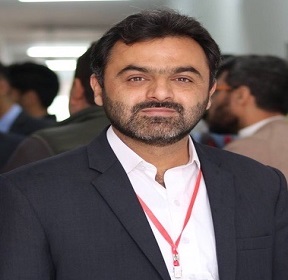
Najeeb Ullah Khan
The University of Agriculture, Khyber Pakhtunkhwa PakistanTitle: Significant association of BRCA1, BRCA2 and TP53 gene polymorphisms with breast cancer risk in Khyber Pakhtunkhwa, Pakistan
Abstract:
Molecular characterization of breast cancer heterogeneity facilitates the understanding of disease etiology and progression. More specifically, mutations in known and tumor suppressor genes such as BRCA1, BRCA2 and TP53, result in the alteration of a genomic landscape within sporadic and familial breast cancers. Single nucleotide polymorphisms (SNPs) are described as a mutation with a particular prevalence in certain ethinic population that in turn result in the altered prevalence of disease, the tumor suppressor genes responsible for maintaining the genomic stability. Certain SNPs in BRCA1, BRCA2 and TP53 are known to correlate with elevated risk of breast cancer development worldwide, however there is no such study categorizing the risk of breast cancer development in the Khyber Pakhtunkhwa population in Pakistan.
Biography:
Najeeb Ullah Khan have a Ph.D. in Biochemistry and Molecular Biology. Recently, He is working on human genetic variability and susceptibility to cancer. His focus is to find the most associated gene polymorphism with cancer risk in our region and check the potential of that particular gene polymorphism as a biomarker for disease monitoring, especially cancer early diagnosis, particularly breast cancer. So far, they have confirmed the association of BRCA1&2, TP53, RANKL, OPG, IL-6, HER2 etc) polymorphisms with breast cancer risk in our population (Pashtun ethnicity). Several other related studies are under process in breast and other cancer including the association of noncoding RNA (microRNAs) with cancer risk. Interested in any kind of research collaboration in the field of cancer Biology, cancer genetics and cancer early diagnosis.
